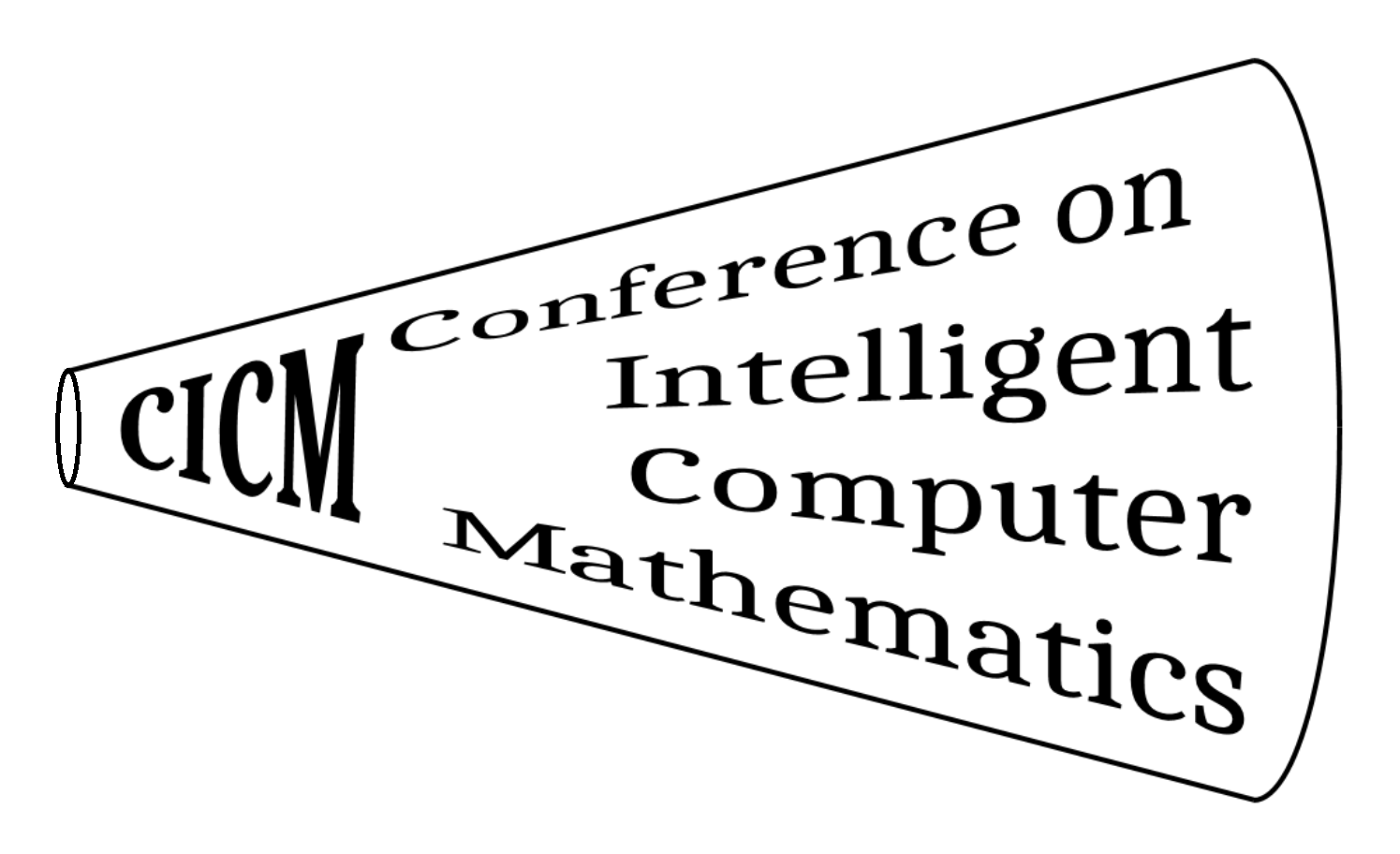CICM Charter0. PurposeThe Conference on Intelligent Computer Mathematics (CICM) is an organization and a conference dedicated to promoting the advancement of machine-supported reasoning, computation, and knowledge management in Science, Technology, Engineering, and Mathematics. CICM is the result of convergence of various research communities that organize a joint annual conference. The purpose of this charter is to make explicit the consensus about the goals and organization of CICM. This charter is not a legal document of any sort. If any legal documents or acts are necessary (e.g., with respect to finances), CICM members shall follow this charter as much as legally possible. 1. MembersThe CICM membership roster is maintained via the CICM mailing list, and people can join and leave CICM by subscribing and unsubscribing. They also join CICM by attending a CICM conference. 2. Business MeetingCICM takes decisions by democratic votes at the business meeting held at the annual CICM conference. The business meeting
3. Steering Committee (SC)The SC takes the CICM decisions between business meetings. The main task of the SC is to guarantee the continuity of CICM. The SC consists of
The SC
The secretary and the track representatives are elected by the CICM members in an online vote. Their terms of office begin with the election and end with the election three years afterwards. The treasurer is appointed by the SC. In cases where a consensus cannot be reached, the SC decides by simple majority, where each vote of an elected SC member is counted twice. However, the termination of CICM and the distribution of the remaining funds requires a unanimous decision. 4. SecretaryThe secretary
5. FinancesConference organizers are encouraged to plan for a modest surplus (10% of the overall budget) to be plowed back into the CICM funds. Surplus funds are maintained by CICM and primarily used to seed future CICM conferences and safeguard the conference chairs from indemnification. Surplus funds beyond this requirement are re-invested into the CICM community, for instance, in the form of prizes or student grants. The treasurer keeps the financial records, manages the CICM accounts, and disburses funds according to the CICM charter. CICM is itself a member of IfCoLog, which provides CICM with a tax-exempt account. Both the treasurer and the secretary have access to the IfCoLog account. 6. Programme ChairsCICM conferences have two programme chairs. They decide jointly. They are responsible for the overall organization and composition of the academic programme, may propose new tracks to the SC, select the CICM programme committee, and select the workshops and tutorials. Each CICM conference has a single proceedings volume that contains the accepted formally refereed contributions from all tracks. The programme chairs are the editors of the proceedings. The formal CICM proceedings are accompanied by informal proceedings for workshop, work-in-progress, and similar contributions. 7. Conference chairsEach CICM conference has one or two conference chairs, who organize all aspects of the conference except for those mentioned in (6). In particular, they are responsible for local arrangements and the conference budget. 8. InitializationUpon acceptance of this charter, the initial core tracks are
The ratification of this charter dissolves the present MKM and CALCULEMUS organizations. In particular, their charters and boards of trustees expire. Adopted October 16th 2015This charter replaces the CICM charter 2011-2015 which had the tracks as members. |


Welcome to the
Conference on Intelligent Computer Mathematics
You must enable JavaScript to use this site
Last modified: August 08 2024 20:41:26 CEST